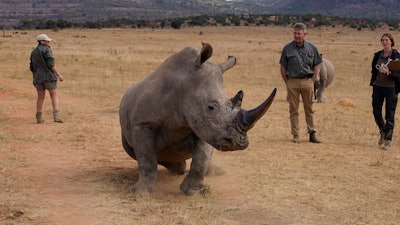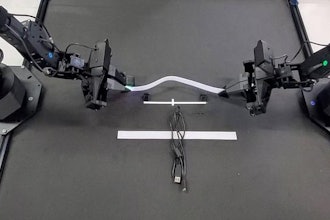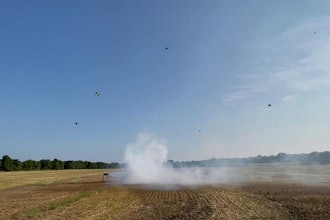
MOKOPANE, South Africa (AP) — Researchers in South Africa have injected radioactive material into the horns of 20 rhinos as part of a research project aimed at reducing poaching.
The idea is that radiation detectors already in place at national borders would detect the horns and help authorities arrest poachers and traffickers.
The research, which has included the participation of veterinarians and nuclear experts, begins with the animal being tranquilized before a hole is drilled into its horn and the nuclear material carefully inserted. This week, researchers at the University of the Witwatersrand 's Radiation and Health Physics Unit in South Africa injected 20 live rhinos with these isotopes. They hope the process can be replicated to save other wild species vulnerable to poaching — like elephants and pangolins.
According to figures by the International Union for Conservation of Nature, an international conservation body, the global rhino population stood at around 500,000 at the beginning of the 20th century. It now stands at around 27,000 due to continued demand for rhino horns on the black market.
South Africa has the largest population of rhinos with an estimated 16,000, making it a hotspot with over 500 rhinos killed yearly.
The country experienced a significant decline in rhino poaching around 2020 at the height of the COVID-19 pandemic, but the numbers increased when virus lockdown restrictions were eased.
While the idea has received support from some in the industry, the researchers have had to jump many ethical hurdles posed by critics of their methodology.
Pelham Jones, chairperson of the Private Rhino Owners Association, is among the critics of the proposed method and doubts that it would effectively deter poachers and traffickers.
Professor Nithaya Chetty, dean of the science faculty at Witwatersrand, said the dosage of the radioactivity is very low and its potential negative impact on the animal was tested extensively.






















